10 Celebrities Who Removed Fillers and Left Everyone Speechless
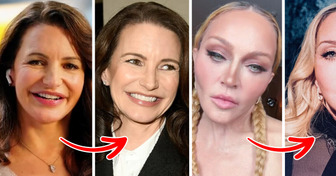
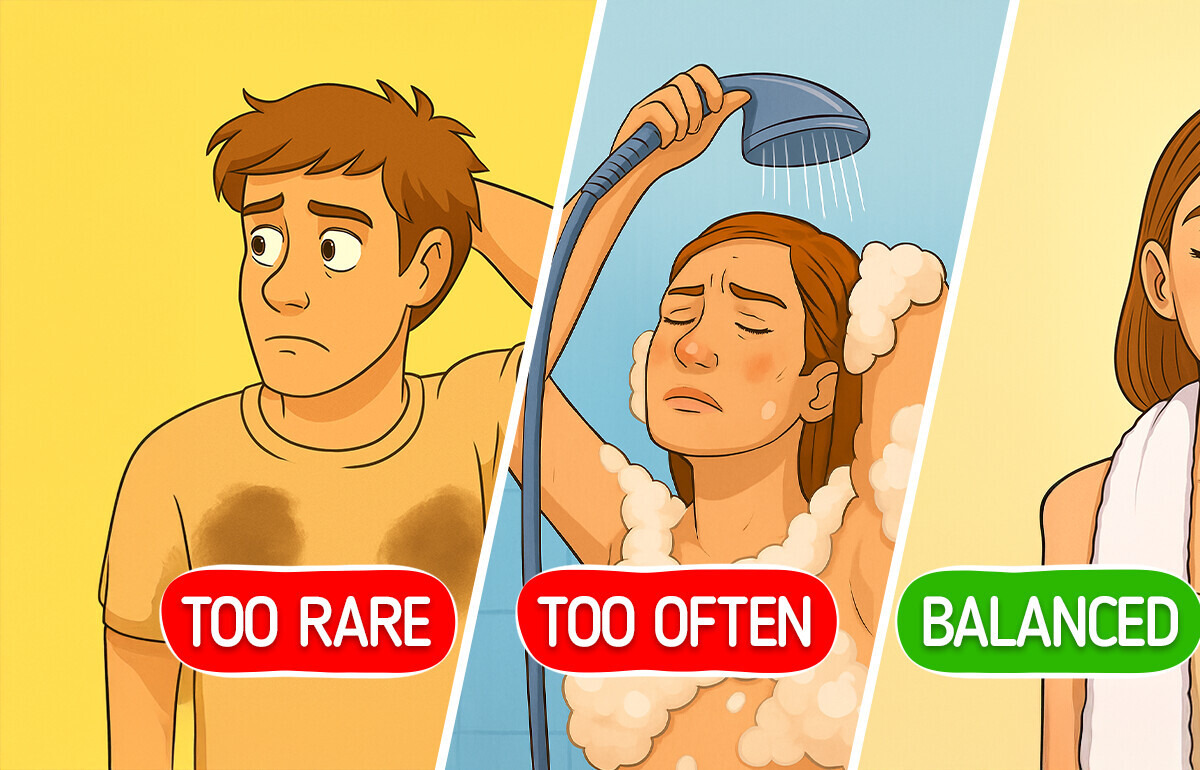
Many people believe that showering every day is essential, but experts say that might not be the case. How often you actually need to step under the water depends on your lifestyle, skin type, and even the season. Here’s what science and dermatologists have to say about finding the right balance for your body.
Dr. James Hamblin, a preventive medicine and public health specialist, recently spoke with CNN’s Chief Medical Correspondent about a set of questions that sparked his curiosity: how much of the products we find in store aisles are truly essential for our health, and could doing less actually be better?
To explore the idea, Hamblin embarked on a personal experiment, drastically cutting back on traditional showers for nearly five years. In his book Clean: The New Science of Skin, he recounts his journey and examines the history of hygiene and cleanliness. He clarifies that while he stopped regular showering five years ago, those years were filled with trial, error, and testing various routines.
Over time, he experimented with different products and approaches, often keeping his hygiene routine to a bare minimum — but never completely abandoning it for the entire five-year period.
Currently a lecturer at the Yale School of Public Health, Hamblin pointed out that many personal care items benefit from what he describes as “a large health halo.” He said that people often assume these products deliver substantial hygiene benefits, mostly because of medical-style claims that are driven more by advertising than genuine health effects.
“If you look at the actual way in which many of those products are actually doing anything to prevent disease transmission (besides) making sure you don’t have bodily fluids on you ... that might transmit disease, the rest of it is making you look and feel and smell good,” he said.
Hamblin explained that while soap is helpful, especially for breaking down sticky or greasy residues, much of the cleaning actually comes from physical action. “But usually, it’s more the mechanical force that’s doing most of the washing,” he noted, adding that simply rubbing your hands under running water can remove a lot of dirt. He clarified that this applies to most everyday scenarios, though certain professions — like food handlers or surgeons — require stricter hygiene standards to maintain sterility.
Part of his motivation for writing the book came from a then-emerging health trend. “People were suddenly taking probiotics and wanting to have optimal gut flora,” he said. He noticed a similar potential shift in how people might view skin health, pointing out that the body is home to trillions of microbes. While the skin microbiome is smaller than the gut’s, the underlying concept is much the same.
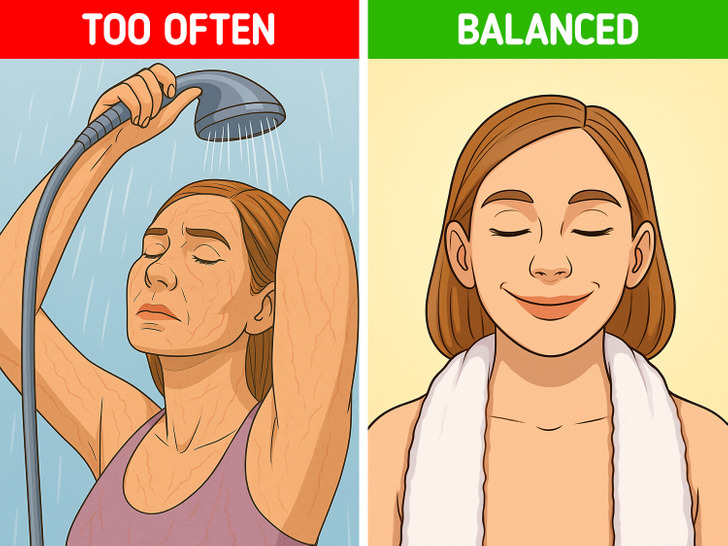
Our skin, much like the gut, is home to a complex and diverse community of microbes. This skin microbiome serves as a link between our body’s inner systems and the external world, influencing many aspects of our health — though its full role is still being explored. Over-washing can upset this fragile ecosystem, potentially triggering unwanted effects.
“There is a harmony between the oils and chemicals that your skin secretes naturally and the skin microbiome that lives on that skin,” the doctor explained. “You temporarily disrupt the microbiome when you take a hot shower, and you use (soap). But you’re also disrupting essentially the soil on which those microbes live, by drying out your skin and removing all the oils.”
He went on to say, “It’s not necessarily bad, but it changes the dynamic. And if you are prone to an inflammatory cascade like (what) happens with eczema or acne, you can be exacerbating (that problem).” He likened the process to clear-cutting a forest — an action that alters the environment and is not always beneficial.
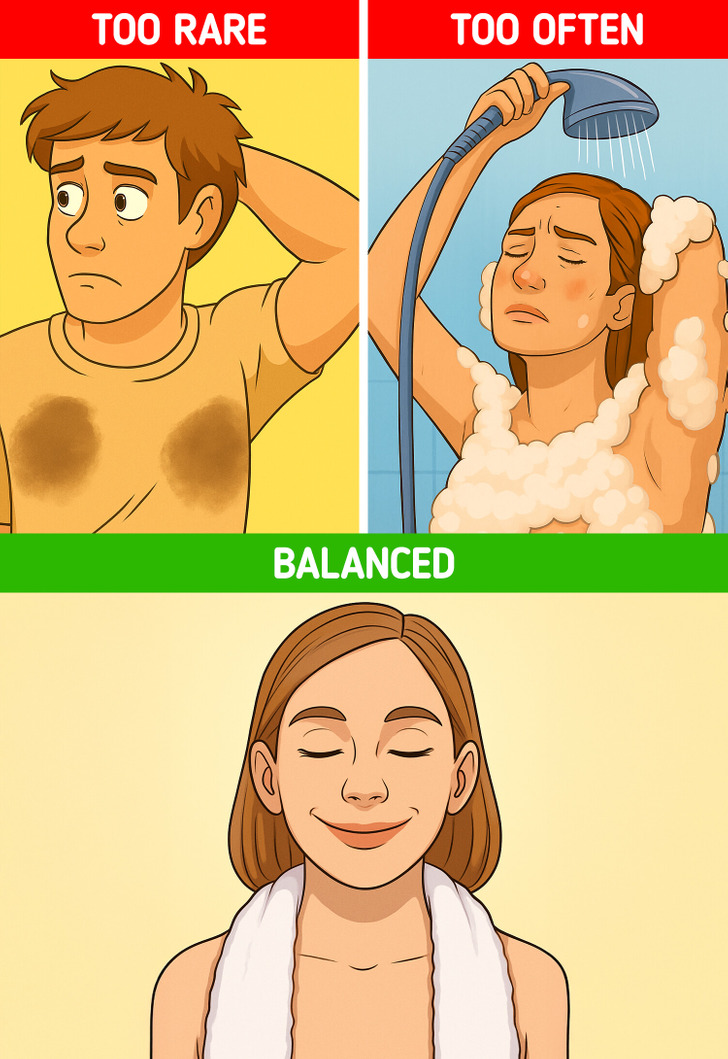
Dr. Hamblin explained that hygiene focuses on preventing the transmission of infectious diseases, while cleanliness is more of a personal and ritualistic habit. Hygiene, he said, involves actions “like washing your hands after you use the bathroom so you’re not spreading any kind of bodily fluids — you’re not sneezing into your hand and then shaking someone’s hand — the very basics of what you would do specifically so you do not get other people sick.”
Cleanliness, on the other hand, is “a much broader category of feeling like you are refreshed and renewed and your best self.” He added that it’s “certainly not purely cosmetic” and that there are psychological benefits as well. Hamblin pointed out that taking a full-body shower every day is “purely a cosmetic and recreational choice,” not a necessity for staying healthy.
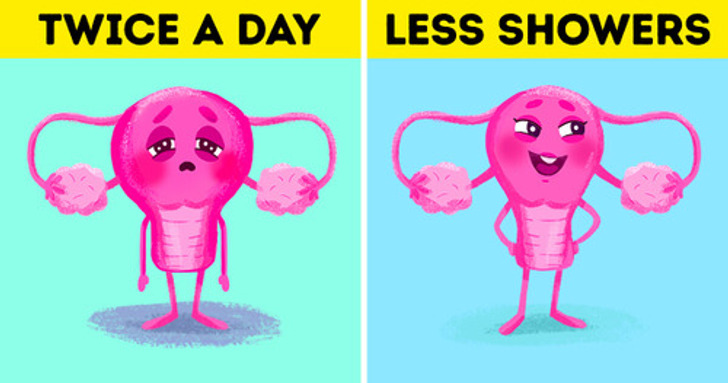
The skin in the female intimate area is delicate and easily irritated by common products, such as shower gels. For this reason, it’s best to avoid washing too frequently, as over-cleansing can worsen dryness and trigger irritation. Once a day is generally enough.
Excessive use of feminine wash can also disturb the natural microbiome of the intimate area. This imbalance may lead to bacterial infections, yeast-related problems, and other health concerns. In some cases, it has been linked to fertility issues, pregnancy complications, and even challenges with conception.
Diabetes is a serious condition that often develops slowly, with symptoms that can be easy to overlook. While early signs may seem minor, identifying them promptly is essential for timely diagnosis and effective management. Follow this link to learn more.











